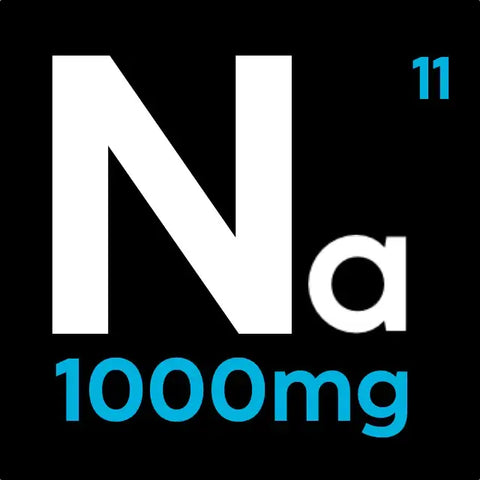
Magnesium, an essential mineral, plays a critical role in over 300 enzymatic reactions in the human body, including those related to muscle and nerve function, energy production, and cardiovascular health. Despite its importance, magnesium deficiency is not uncommon in India, particularly due to dietary patterns that may not meet the recommended daily intake. According to a study published in the Indian Journal of Endocrinology and Metabolism, a significant proportion of the Indian population may not be consuming adequate magnesium, particularly in urban settings where processed foods are more prevalent . Below, we explore seven scientifically backed signs of magnesium deficiency, focusing on their relevance to Indian consumers.
1. Muscle Cramps and Spasms
Muscle cramps and spasms are often early signs of magnesium deficiency. Magnesium is essential for muscle relaxation, as it acts as a natural calcium blocker. Without sufficient magnesium, calcium can cause muscles to contract uncontrollably, leading to cramps. A study conducted in Kerala found that individuals with low magnesium levels experienced a higher incidence of muscle cramps, particularly in the elderly population . This is particularly relevant in India, where diets low in magnesium-rich foods like green leafy vegetables, nuts, and seeds can contribute to deficiencies.
2. Chronic Fatigue and Weakness
Magnesium plays a crucial role in the production of ATP (adenosine triphosphate), the molecule responsible for storing and transferring energy in cells. Inadequate magnesium intake can result in reduced ATP production, leading to chronic fatigue and muscle weakness. Research published in the Journal of Nutrition indicates that a significant portion of the Indian population, especially women, may be at risk for magnesium deficiency due to insufficient dietary intake and high rates of malnutrition in some regions . The Indian diet, often heavy in cereals and low in diverse fruits and vegetables, may not provide sufficient magnesium, especially for those with increased physiological needs, such as athletes or individuals under stress.
3. Hypertension
Hypertension, or high blood pressure, is a growing concern in India, with prevalence rates as high as 29% in adults according to the Indian Heart Journal. Magnesium helps regulate blood pressure by acting as a natural vasodilator, relaxing blood vessels and improving blood flow. A meta-analysis of clinical trials published in the Journal of Human Hypertension found that magnesium supplementation could lead to significant reductions in both systolic and diastolic blood pressure . Given the rising incidence of hypertension in India, particularly among urban populations, ensuring adequate magnesium intake is critical for cardiovascular health.
4. Anxiety and Depression
Magnesium is involved in the regulation of neurotransmitters that influence mood, such as serotonin. Low magnesium levels have been linked to increased rates of anxiety and depression. A study conducted at the National Institute of Mental Health and Neurosciences (NIMHANS) in Bengaluru found that magnesium deficiency was associated with higher levels of anxiety and depressive symptoms in patients . The traditional Indian diet, which may lack sufficient magnesium-rich foods, coupled with lifestyle stressors, could contribute to this deficiency, exacerbating mental health issues.
5. Insomnia and Sleep Disorders
Magnesium plays a vital role in regulating melatonin, the hormone responsible for controlling sleep-wake cycles. Deficiency in magnesium can lead to poor sleep quality and insomnia. A study from the All India Institute of Medical Sciences (AIIMS) highlighted the prevalence of sleep disorders in India, linking them to nutritional deficiencies, including magnesium . Given the increasing stress levels and sleep disorders reported in urban India, magnesium supplementation could be a crucial intervention.
6. Headaches and Migraines
Frequent headaches and migraines can be a sign of magnesium deficiency, as magnesium is essential for neurotransmitter function and the regulation of blood vessel tone. A study published in the Indian Journal of Pharmacology found that magnesium supplementation reduced the frequency of migraine attacks in patients by up to 40% . Considering the high prevalence of migraine in India, especially among women, ensuring adequate magnesium intake could be a key strategy in managing this condition.
7. Arrhythmia (Irregular Heartbeat)
Magnesium is critical for maintaining a normal heart rhythm by supporting the electrical stability of cardiac cells. Deficiency can lead to arrhythmias, which may increase the risk of more severe cardiovascular conditions. According to research from the Journal of the Association of Physicians of India (JAPI), low magnesium levels are commonly observed in Indian patients with cardiovascular disease . Given the rising burden of heart disease in India, maintaining adequate magnesium levels is essential for cardiac health.
Why Magnesium Malate Is the Optimal Form for Active Individuals.
When considering magnesium supplementation, especially for active individuals, magnesium malate is an optimal choice due to its superior absorption and bioavailability. Magnesium malate is a compound of magnesium and malic acid, which plays a key role in the Krebs cycle, an essential process for energy production.
- Enhanced Bioavailability
- Support for Energy Production
- Reduces Muscle Soreness and Fatigue
- Electrolyte Balance
Magnesium is a vital mineral that impacts nearly every aspect of human health, from energy production to cardiovascular health. Given the dietary patterns and lifestyle factors prevalent in India, magnesium deficiency is a concern that should not be overlooked. For active individuals, magnesium malate offers a superior form of supplementation, providing enhanced absorption, better energy production, and effective recovery support. Ensuring adequate magnesium intake, either through diet or supplementation, is essential for maintaining overall health and well-being, particularly in the context of India’s unique dietary and environmental challenges.














